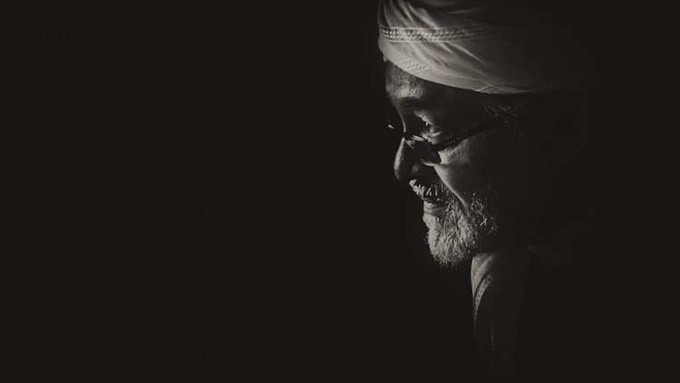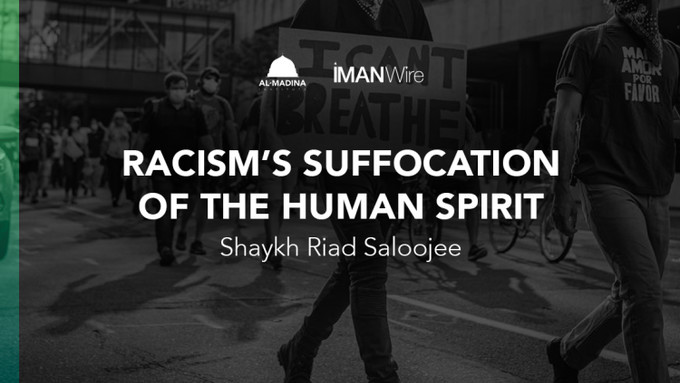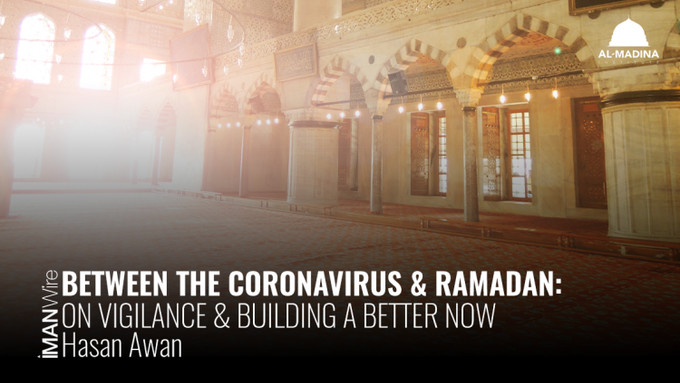My Spiritual Visit to Ahl al-Bayt in Morocco
Surely the Friends of Allah, there is no fear upon them nor shall they grieve. (Surah Yunus, Ayah 62)
I started off the New Year on the Gregorian calendar in the North African kingdom of Morocco. Though many people vacation there to see historic sites of the Romans, enjoy hot springs and saunas, and eat delicious food, my motive was to visit the stations of the Awliya (often translated as saints) who descend from Prophet Muhammad (prayers and peace be upon him and his family). As my time was limited, I focused my travels to visit Moulay Idris Zerhoun, staying nearby in Meknes, and Fes, which is commonly known as the City of Saints.
In Meknes and Fes I visited resting places of the Awliya there and became acquainted more deeply with spiritual luminaries such as Sidi Muhammad az-Zaki bin al-Ghali al-Hasani, Sidi Abdullah bin Hamad al-Hasani, Sidi Muhammad bin ‘Isa al-Hasani “ash-Shaykh al-Kamil”, Sidi Ahmad at-Tijani al-Hasani and Sidi Abdul Aziz ad-Dabbagh al-Hasani (may Allah have mercy upon them). While I could elaborate more on them, especially Sidi Abdullah bin Hamad and Sidi Abdul Aziz ad-Dabbagh, I will discuss the history and my experiences behind visiting their spiritual fathers, Mawlay Idris al-Akbar and Mawlay Idris al-Azhar (may Allah’s blessings be upon them).
Mawlay Idris al-Akbar’s lineage is Idris bin Abdillah bin al-Hasan al-Muthanna bin al-Hasan as-Sibt bin Ali bin Talib (may Allah’s blessings be upon them). He was born during a time in which there was overt persecution of the Ahl al-Bayt, the Household of the Prophet, by Muslim-led government authorities and their acolytes. Mawlay Idris was a scholar and spiritual doctor yet was far from being a political quietist. He, like his older brothers, openly challenged Abbassid sultans who neglected the rights of the poor and oppressed scholars. His brothers Muhammad, also known as an-Nafs az-Zakiyyah (the Pure Soul), Ibrahim al-Ghamr and Yahya Sahib ad-Daylam were involved in uprisings against ‘Abbasi tyranny and were martyred in the process. More can be read about those men in the latest book which I coauthored with Sidi Ahmad Mubarak entitled Centering Black Narrative: Ahl al-Bayt, Blackness & Africa. After the worst slaughter of members of the Ahl al-Bayt since the massacre of Karbala at a location known as Fakh, Mawlay Idris, a witness to this event, fled the Hijaz to North Africa. He united the Amazigh (Berber tribes) and the Arabs and called them to pledge allegiance to him under the banner of Ahl al-Bayt, which they did.1 Hence, he is the founder of what is historically known as al-Adarisah, the Idrissid dynasty, and is basically the father of Morocco itself. Mawlay Idris was later martyred by poisoning at the command of the ‘Abbasi leader Harun “ar-Rashid.”2
The resting place of Mawlay Idris is in a small village known as Moulay Idris Zerhoun. The masjid where his tomb resides is a magnificent structure and is literally the focal point of the village, sitting on top of a steep hill near a valley of olive trees. In Morocco, visiting this masjid is known as the “Pilgrimage of the Poor” as many Moroccans live in poverty and cannot afford to make Hajj to Makkah. Of course, Moroccans do not say that visiting Mawlay Idris is obligatory according to sacred law nor relieves anyone from the religious obligation of making Hajj if one is able to afford to. The Pilgrimage of the Poor is for greeting Mawlay Idris for the purposes of blessings and to make du’a at the station of the spiritual father of the Awliya in that land which came after him. Though there were tourists from Europe in the village, non-Muslims are not allowed to enter the masjid of Mawlay Idris. I felt nothing but a sense of calmness when approaching his maqam on the two separate days which I visited.
After leaving Moulay Idris Zerhoun, I went on to Fes, the resting place of Mawlay Idris al-Azhar, the son of Mawlay Idris al-Akbar. I thought it to be only fitting to visit the city of the father first before traveling to the city of the son. Mawlay Idris al-Azhar solidified the rule of the Idrissid dynasty in Morocco and made Fes its capital. As his father can be said to be the father of Morocco in general, Mawlay Idris al-Azhar is the father of Fes.
The first thing I did upon arriving in Fes was to make my way to the maqam of Mawlay Idris al-Azhar. As soon as I got to the entrance, a man who I did not know said to me in Arabic, “Welcome, O shaykh; come with me.” He walked me over to a small door which was an entrance to where Mawlay Idris al-Azhar is buried, at the location of his head. As I sent Salaam to Mawlay Idris al-Azhar and made du’a for healing for a number of people I know as well as protection for the Ummah in general, the moment felt exactly as I imagined it would be.
As I exited the door and went to the front of the maqam, I thought of a dream that I had in the month of Ramadan three years earlier. I felt overwhelmed to be in the city which I had read so much about. I thought of some of the descendants of Al-Hasan bin Ali who were brought to the Americas as enslaved people. Their descendants may not even be Muslims today, and even fewer know of their noble lineage. With this overwhelming feeling and many thoughts going through my mind, I made two units of prayer and then left. I proceeded to come back to the maqam the next two days while in Fes before leaving to head back to the States.,
Trips such as these are important for Muslims in the West, especially for those of us who come from convert backgrounds, in particular for descendants of the enslaved Africans who were severed from our traditions and lineages. I am not saying that Morocco or other locations are utopias on earth; they have their share of problems in part because many in these places either take for granted or lack understanding of their own traditions. I believe, however, that to embody the tradition we need to connect to the Awliya who transmitted and embodied the sacred law and spiritual refinement. They are, in turn, connected to us today through living teachers.
I pray to Allah (Mighty and Sublime) that you all have the opportunity after making Hajj and visitation to the Prophet (prayers and peace be upon him and his family) in al-Madinah that you are able to visit Moulay Idris Zerhoun and Fes.
1. Tahir bin Abd as-Salam al-Hasani, Hisn as-Salam Bayna Yadi’ Awlad Abd as-Salam, Pages 258-261.
2. Majd ad-Din al-Mu’ayyidi, At-Tuhfah Sharh az-Zalaf, Page 75.
Life & Culture Related Articles

Shaykh Seraj Hendricks: Obituary
An internationally recognised Islamic scholar, who saw spirituality, justice, and knowledge as integral to an authentic religious existence. Shaykh Seraj Hendricks, who passed away on the 9th of July 2020 at the age of 64, was a scholar of international repute, able to communicate and engage on the level of state leaders, religious scholars and the broader public.

Racism’s Suffocation of the Human Spirit
I can’t breathe. George Floyd’s last words, conveying, verbatim, Eric Garner’s last words, with echoes through a long chain of souls – Breonna Taylor, Michael Brown, Walter Scott, Freddie Grey, Jamar Clark, Alton Sterling, Stephon Clark and Botham Jean – is a testamentary call that should pierce every Muslim’s mind and heart.

Between the Coronavirus & Ramadan: On Vigilance & Building a Better Now
I pray that, as we continue to lovingly welcome and vigilantly discover the blessings inherent in Ramadan upon us, we awaken to all the moments and especially the moment that Allah has chosen to place us. A quotation from Charles Dickens, the opening to one of his novels, is worth reflecting on: “It was the best of times, it was the worst of times.”